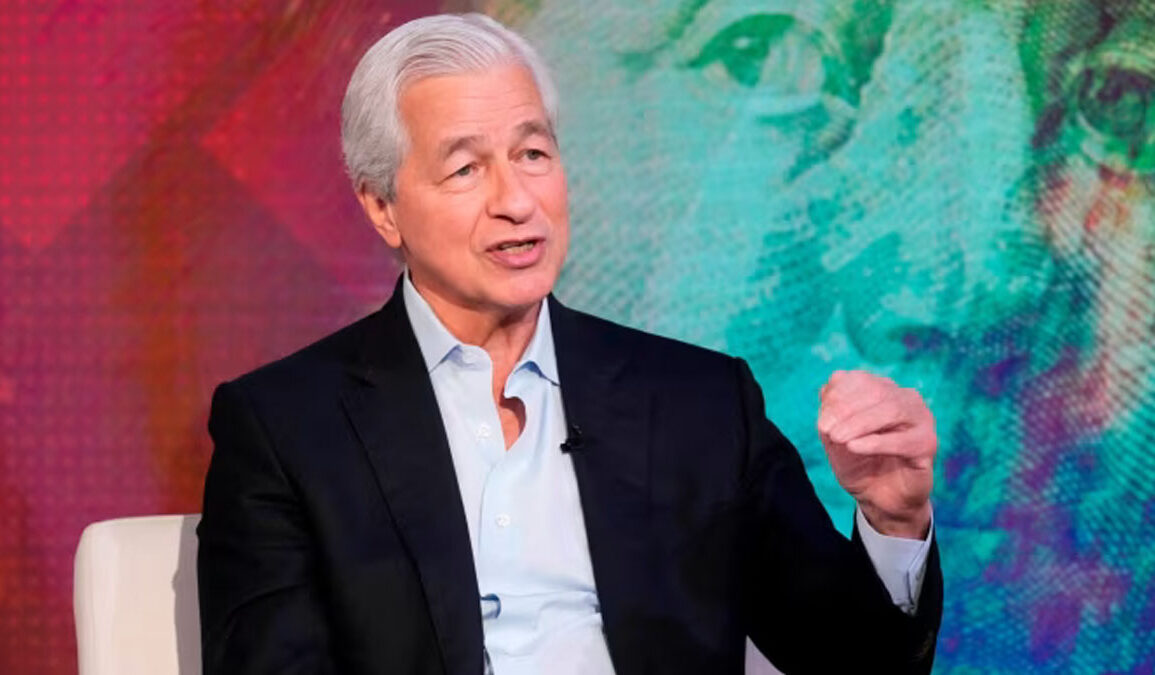JPMorgan Chase CEO Jamie Dimon is no stranger to politics. But his latest comments have ignited fierce debate across party lines — especially within the Democratic Party he’s long supported. Speaking at a foreign ministry event in Dublin, Dimon took direct aim at Democrats, describing many of them as well-meaning but out of touch.
“I have a lot of friends who are Democrats, and they’re idiots,” Dimon said, according to Bloomberg. “I always say they have big hearts and little brains. They do not understand how the real world works. Almost every single policy rolled out failed.”
These remarks, made while Dimon was speaking abroad, land during a turbulent time for Democrats, who are still recovering from significant losses in the 2024 election and bracing for contentious local races — including the New York City mayoral contest.
A CEO at Odds with His Own Party
Jamie Dimon has long walked a political tightrope. A registered Democrat, he has often donated to both Democratic and Republican candidates and has advocated for a mix of social liberalism and business pragmatism. In 2019, he said, “My heart is Democratic but my brain is kind of Republican.”
But his latest comments reflect growing frustration with what he sees as the party’s shift toward ideology over practical solutions. Much of his criticism centered on the Democrats’ aggressive push for diversity, equity, and inclusion (DEI) initiatives.
“They overdid DEI,” Dimon said. “We all were devoted to reaching out to the Black community, Hispanic, the LGBT community, the disabled — we do all of that. But the extent, they gotta stop it. And they gotta go back to being more practical. They’re very ideological.”
While Dimon emphasized his company’s continued support for inclusion, JPMorgan Chase recently rebranded its DEI efforts to “Diversity, Opportunity, and Inclusion,” signaling a step back from politically charged language. Chief Operating Officer Jenn Piepszak said in a memo that the new branding “more accurately reflects our ongoing approach.”
Dimon Calls Out Biden and Mamdani
Dimon also turned his attention to the Biden administration, criticizing its lack of real-world business experience. “He didn’t have one businessperson advising him,” Dimon said. “I was left speechless by the lack of knowledge.”
And when it came to New York’s upcoming mayoral race, Dimon didn’t hold back. Zohran Mamdani, a self-described democratic socialist who recently secured the Democratic nomination, was labeled by Dimon as “more of a Marxist than a socialist.”
“He’s pointing out some real problems — affordable housing and grocery prices. OK, maybe,” Dimon said. “But it’s the same ideological mush that means nothing in the real world.”
His warning comes as many New Yorkers express concern over Mamdani’s proposals, which include rent freezes and publicly owned grocery stores. Dimon’s comments may resonate with moderate Democrats and independents in the city who are looking for practical leadership, not ideological experiments.
Critics Push Back
Dimon’s comments drew swift reactions from both sides. Progressives accused him of being out of touch with modern social justice efforts and prioritizing Wall Street interests over marginalized communities.
“This is what happens when billionaires feel threatened by policies that might actually redistribute power,” one Democratic strategist told Politico. “He’s trying to paint pragmatism as incompatible with justice — but they’re not.”
Others argue that Dimon’s frustration reflects broader disillusionment with elite liberalism, especially in New York City, where rising crime, economic hardship, and a perception of government dysfunction have driven some traditional Democrats to reconsider their allegiances.
Dimon’s remarks could influence how moderate and business-friendly voters approach the upcoming mayoral election in New York. With Mamdani representing the far-left wing of the party, Dimon’s criticisms may embolden opposition candidates and encourage a more centrist alternative to emerge.
For Democrats more broadly, Dimon’s comments are a wake-up call. The party’s base may be passionate, but as Dimon sees it, passion without practical solutions won’t fix problems — and may alienate crucial swing voters.
Despite years of being labeled “Obama’s favorite banker,” Dimon has now become one of the most prominent voices warning Democrats that their ideological tilt could come at a steep political cost. Whether party leaders take that warning seriously could determine their ability to regain power — not just in Washington, but on the streets of New York as well.








